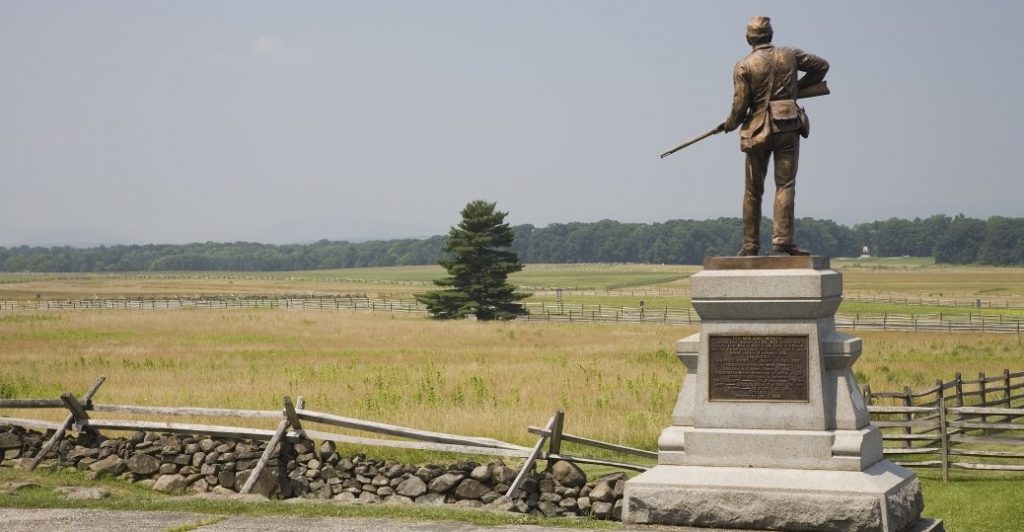

Today—the day before the Fourth of July—is the 160th anniversary of the end of the largest and most significant battle of the Civil War. There were more casualties in the Battle of Gettysburg than in any other battle of the Civil War–and by the end of the battle, the Union had gained an advantage that would lead eventually to the Confederacy’s surrender in 1865.
President Abraham Lincoln gave the most memorable speech of his life at a commemoration of this battle, but the primary source excerpt that I’ve selected as the focus for this post is not his Gettysburg Address. Instead, it’s his second inaugural address, which served as a reflection on the meaning not just of the Battle of Gettysburg but of the entire war. In my opinion, it may be the most theologically poignant speech ever delivered by an American president.
During the week of July 4th, it’s common to hear excerpts from great American speeches that make us feel that God is on the side of American democracy. But in his second inaugural address, Lincoln suggested a deeper question: At a moment of deep national disunity, how could both sides in the Civil War believe that God was on their side? Surely God had his purposes in the conflict, but God could not be on both sides simultaneously, he argued.
Resisting the triumphalist views of some members of his own party who viewed the Civil War as a rightful punishment of the sins of Confederate traitors, he saw the war instead as atonement for the national sin of slavery – and he called therefore for a national reconciliation with humility and “malice toward none.”
As we celebrate the Fourth of July this week, we may be tempted to base our feelings of patriotism and desire for national unity on national pride and an insistence that God is on our side. But Lincoln’s speech and its historical context suggest a different vision: a strong commitment to national unity and a fervent belief in American institutions, but not a triumphalist pride in American greatness.
Lincoln’s example suggests that in our commitment to America, we might do well to couple optimism about the nation’s future and a belief in the nation’s ideals with a generous measure of humility, acknowledgement of our national sins, reverence for God’s often inscrutable purposes, and a charitable disposition toward others – especially toward those with whom we disagree.
For Lincoln’s full speech, click here.
Thurlow Weed sent Lincoln a note praising the inaugural; Lincoln wrote back:
“Every one likes a compliment. Thank you for yours on my little notification speech, and on the recent Inaugeral Address. I expect the latter to wear as well as – perhaps better than – any thing I have produced; but I believe it is not immediately popular. Men are not flattered by being shown that there has been a difference of purpose between the Almighty and them. To deny it, however, in this case, is to deny that there is a God governing the world. It is a truth which I thought needed to be told; and as whatever of humiliation there is in it, falls most directly on myself, I thought others might afford for me to tell it.”
Thank you, John, for posting Lincoln’s response to a complement on his Second Inaugural. We need more of Lincoln’s humility and wisdom in our leaders today.
I have regularly reread and shared Lincoln’s Second Inaugural with others. I found Dr. William’s comments to be quite moving and am sharing it with my wife today.